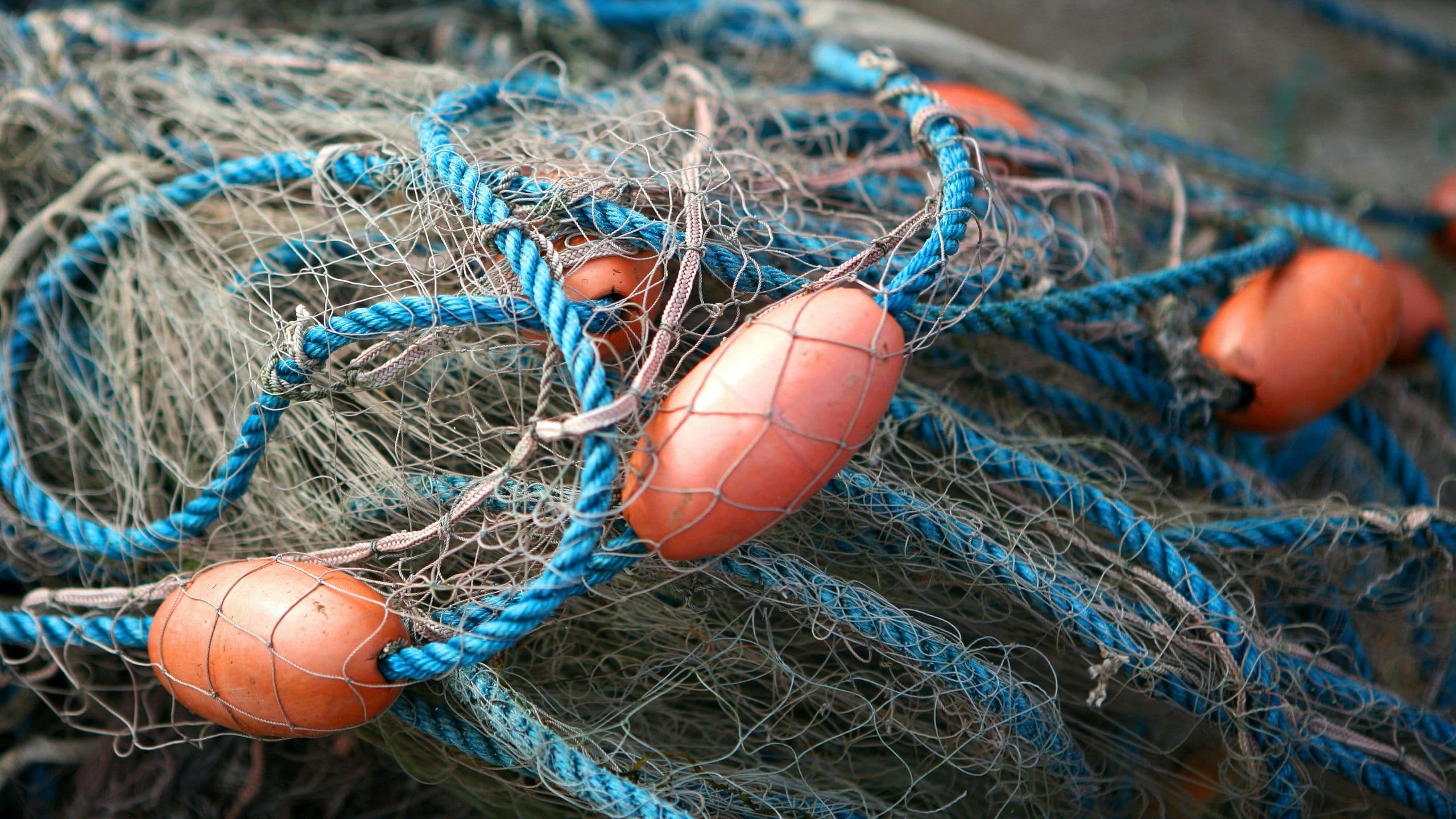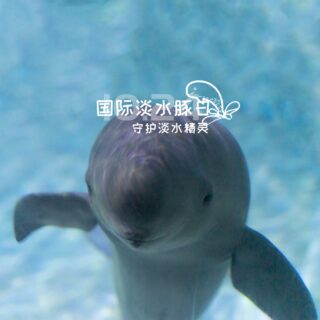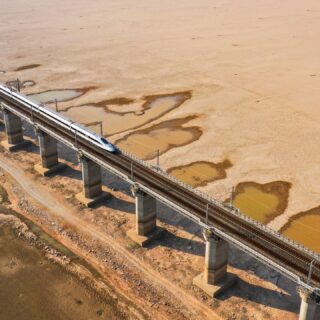Yangtze fishermen's compensation in Jiangsu
Sense of gain for fishermen after the Fishing Ban
The authors are grateful to Shuyi Hu, our guest editor, for proof-reading this article.
The Yangtze is China’s largest river, and its biodiversity not only supports local aquatic ecosystems but also ensures the food security of the region. As fish take the middle to top layers of the food pyramid, their protection is among “the direct and most important goals“. Data from research show that there are more than 400 fish species in the Yangtze River Basin, among which around 350 are freshwater ones and 156 are unique to the region. However, the fishery catch of the river basin has been rapidly declining within the last few decades. This, on the one hand, proves the depletion of fishery resources of the Yangtze, and on the other, reveals the loss and degradation of biodiversity and environmental health of the river.
As China vows to “put the ecological restoration of the Yangtze at an overwhelming position“, fishing has been completely banned on the river since 1 January 2021, and the ban will stay in pace for a duration of ten years. The 10-year fishing ban gives the river a valuable chance to rehabilitate. However, it also means around 231,000 fishermen are forced to give up their walks of life to start brand new ones ashore.
As supporting policies for the fishing ban, the Chinese Ministries of Agriculture and Rural Affairs, Finance, and Human Resources and Social Security jointly announced in January 2019 the Implementation Plan for Fishing Ban and Fishermen Compensation of the Yangtze River. The plan aims to “guide former fishermen for re-employment or self-employment”, and “ensure the basic livelihood of those of them difficult to be re-employed”. The majority of responsibilities for compensating fishermen, according to the plan, lies with local governments, and it encourages local governments to “adjust measures to local conditions and implement policies with flexibility”.
The fishing ban has been put in place for more than a year. Have the fishermen been successfully re-employed? Have they been satisfactorily compensated? A group of students supervised by Prof Guiliang Tian spent ten months in 2020 interviewing former fishermen in Jiangsu Province. Their research won a second prize of the 17th Challege Cup in Jiangsu. Prof Tian, and Zheng Wu, Lan Liang and Yunxiang Bao, three members of the team, shared their opinions and stories.
What attracted your attention to the fishermen? How is their compensation going?
The protection of aquatic biodiversity of the Yangtze lies at the very centre of the protection of the river. As species at the middle to top of the food web, protection of fish should be a core component of the centre. There are more than 400 fish species, 350 freshwater ones among them, in the Yangtze, and most of them can be found in the river section in Jiangsu Province. The continuous over-fishing and habitat degradation have made the river almost completely “fish-free”. Therefore, the fishing ban is an important measure to allow them to recover.
The fishing ban means people who were originally employed in the fishery industry must give up their ways of life. This ban is a very typical administrative intervention, and its impact is profound and significant because it is being implemented very thoroughly. The fishery industry is a highly specialised one. Therefore, fishermen tend to depend on it exclusively for living. They are usually older in age, less educated, and supporting large families. Moving them ashore means asking them to give up their means of production as well, like their boats and fishery tools. Some of them even possess no land or house, and it therefore is a real problem for them to sustain their lives and living standards. China in 2021 declared to have achieved its first centennial goal of a moderately well-off society. Whether moving fishermen out of fishery would drive them back into poverty would be a worthy question.
By December 2020, Jiangsu has completed the relocation of fishermen. According to the local government, all fishermen have stopped fishing and all of them have moved ashore, which is in a leading position in the country. However, these two “alls” do not necessarily mean all fishermen have been re-employed. They have only stopped catching fish for a living. The eight municipalities of Jiangsu along the Yangtze (Nanjing, Zhengjiang, Yangzhou, Taizhou, Changzhou, Suzhou and Nantong) amass a total of more than 40,000 fishermen. Our survey shows that more than 75% of them are more than 46 years old. These fishermen are difficult to be re-employed because they usually lack skills other than fishing and have difficulties learning other skills. About 60% of them have been re-employed, according to our survey, but most of them are re-employed in labour-intensive industries with evidently lower income than before.
Are there any shortcomings in the current compensation scheme of Jiangsu? What do you think is the key problem here?
Currently, the policies of the eight riparian municipalities of Jiangsu are mainly providing one-time compensation to fishermen based on records that have been set up beforehand. Compensation plans differ among the municipalities, ranging from tens of thousands to hundreds of thousands (Chinese yuan), due to different economic strengths. They also provide some help in re-employment, which, however, doesn’t take into consideration differences between families and individuals, and therefore, lacks accuracy and individuality. Our survey shows that there are huge income differences between fishermen. Some of them, who are technology-empowered, have an annual income of around 300,000 yuan, while others, who are older and more comfortable with traditional fishing tools, could only earn ten to twenty thousand yuan annually. Therefore, they have completely different needs.
The current policies target fishermen with fishery permits only. However, as we found in our survey, not all fishermen possess such permits. Those fishermen without permits are in a grey area and not included in the compensation schemes. There is no readily available information about their number and distribution either. As they are not compensated and helped, they are very likely to return to their old business and discount the effect of the fishing ban.
For the source of funding of the compensation, the current policies rely almost exclusively on governmental funds. This is somewhat a heavy load for some local governments, or in some cases, utterly inadequate. For the sustainability of the policies, it is recommended to take advantage of the “users pay” principle. While making use of governmental spending, policy innovations to allow more compensation from beneficiaries of the fishing ban to fishermen.
The team proposed a way to assess the compensation by the satisfaction of the fishermen. Why is that necessary?
Quitting fishing means changing the means of living for fishermen. How could we measure the monetary value of living? This is somewhat similar to valuing life. How much does life cost? Obviously, this is something very difficult to measure with some quantitative standards. In many studies of ecological economics, economists often use people’s willingness to pay¹ to measure the value of resources that are difficult to value. Inspired by this concept, we want to assess the compensation policies by the satisfaction of fishermen. In plain words, we try to look at how much compensation would make them happy.
Moreover, from the perspective of policy implementation, the fishermen are people who are actually taking the actions. If the fishermen are not motivated or proactive for the implementation [of the ten-year fishing ban], the policies would be difficult to sustain, which is against the original intent of the fishing ban. China’s present policies for ecological conservation lay high emphasis on the role of the government and the market, yet the involvement and participation of the public are inadequate. For the ten-year fishing ban, if we are to invite fishermen to proactively participate in the policy, we have to meet their demands first. Sufficiently involving the public and making the policy design into a participatory one are important steps to make the policy sustainable. This is another reason we think assessment based on fishermen’s satisfaction is important.
The underlying rationale of Pay for Ecosystem Services is compensation from beneficiaries. In the case of the fishing ban, how do we understand the ” beneficiary – compensated” relationship?
The fishing ban could be understood as a typical practice of ecological conservation that has obvious externalities². It, to a considerable extent, benefits many industries or communities, including certain riparian residents. It is even beneficial for future generations by saving biodiversity and the environment, and opportunities for sustainable development. Given this, we think, for beneficiary communities who are difficult to identify, we need government funds [for compensation]. However, for those beneficiaries easily identifiable, for example, real estate developers, tourism, water suppliers and waterborne transport, we need to ask them to share their benefits. The ecosystem services provided by the Yangtze, its value takes in direct or indirect forms. Apart from direct values like the scenery, indirect values exist in cost savings in, for example, water treatment, water transport, etc. Their benefits from cost saving should be shared [with fishermen who are bearing the loss]. On the other hand, the catering industry, though they are no longer allowed to sell river fish from the Yangtze, should not dodge their responsibilities as they have been benefiting from it for quite a long time.
Your team proposed a compensation framework based on sustainable means of living, in which, apart from monetary compensation, you also think it is necessary to include social compensation. How do we understand that? How could we help former fishermen to get re-employed?
We think, compensation for the fishermen should include not only monetary but also non-monetary (social) compensation. The social compensation should include career training, child education and pensions. There are three reasons for such consideration. First, a major portion of the former fishermen are in middle or old age. They would have to face the question of how to make a living after quitting fishing. Second, the fishing industry is quite unique because fishermen usually spend days or even a whole month on water, and therefore have a very limited social network. Third, fishermen on average are in a lower social class. As the saying goes, fishermen usually have “no roof over their heads, nor land under their feet”. They might be subject to discrimination or prejudice when they quit fishing and hunt new jobs. These reasons make fishermen difficult to sustain their living, and therefore monetary compensation isn’t sufficient for them.
According to our survey and analysis, the income difference between fishermen is mainly out of three factors. The first one is their region. For example, fishermen from Suzhou and Changzhou are earning more than others. The second is age. Among Suzhou and Changzhou fishermen, those who are in their thirties are commonly making a higher income from the fishery. The third is education, but the third factor is found to be less significant than the other two, which need our attention. Given these factors, the compensation for fishermen should, first, ensure they could sustain their basic living, second, improve their social status, and third, offer them tailored help to get re-employed.
The re-employment of former fishermen cannot be accomplished overnight, and needs actions from three dimensions. Social security comes first. We need unemployment insurance for them on one hand, and supporting policies for their re-employment on the other, like, for example, income tax deductions for fishermen themselves or their employers, or special allowances for the latter.
The second goes the willingness and skills of the fishermen to get re-employed. This would first require a lot of training and information sharing for them through public systems, in particular those fishermen who are willing to and have sufficient skills to get re-employed. Second, apart from in-person events like job fairs, the internet should be made full advantage of for their re-employment. Third, more financial help should be offered to them, like, for instance, low interest or interest-free loans for their new startups to incentivise their own entrepreneurship. A good example we know is the loans provided by the Luhe district of Nanjing for fishermen to start their own businesses.
Industry development is the third dimension. The re-employment of fishermen usually falls into two categories. They could still be employed in fishery-related jobs. For example, some of them are taking up new jobs in fish farming, fishery inspector, and so on. Others might have to move on to new industries which suit their skills. For example, the Jiangyang District of Luzhou, Sichuan offers programmes where former fishermen combine their skills with agriculture to develop new job opportunities. They raise fish in rice paddies, make aquaculture products and develop angling business.
How should the private sector play a role in the resettlement of former fishermen? How is Covid impacting that role?
The Covid pandemic and much uncertainty out of that have impacted the private sector significantly. Small and medium-sized businesses, who are more vulnerable to risks, are impacted in a particularly bad way. In 2021, China’s GDP grew by 8.1%, and that growth is expected to be further lowered to 5.5% according to Premier Li Keqiang’s Government Work Report. This echoes with the risk of a recession of the global economy. But on the other hand, we should also see that China’s economy is with good resilience. More and more businesses are adapting to the situation under a pandemic to maintain their operations, and small and medium-sized businesses are very flexible in this regard. Our survey found that, despite the slow down of the economy, some companies are still short of labour, and are willing to find stable labour sources. They could offer a considerable number of vacancies, including positions suitable for former fishermen. As China’s economy grows into maturity, more businesses are paying more attention to their social responsibilities. They would take on more ESG³ agendas, and are willing to help those in need.
But a major problem lies with how to match the needs of the businesses with that of the fishermen. This would require a lot of information sharing to match the needs of both parties. Additionally, because of the pandemic, many job fairs or training have been moved online, and therefore, many elderly or less educated people are missing more opportunities. The governments have to play a role in match making. Connecting these two parties would allow businesses to tailor the training of fishermen to save time and cut costs.
Additionally, on the government side, to incentivise the resettlement, we would call for tax deductions or cost allowances for small and medium-sized businesses that are willing to take on former fishermen.
In the compensation and resettlement, how could fishermen provide help to each other? Is there any organisation offering such opportunities?
Fishermen are unique because many of them run fishery as a family business which has been passed on for many generations. Groups are formed based on families and there is little connection between different groups. There are few organisations who are facilitating this. We only found an organisation called China Fishery Mutual Insurance Association who, in 2020, started an insurance scheme based on mutual help. However, the scheme is targeting fishery accidents only, and the fishing ban, regarded as a force majeure, is not included in its coverage. For the fisherman community, we would like to call on these organisations for more attention in facilitating such cooperation. They could play an important role in providing support in either physical resources or organising to help fishermen adapt to new situations, and sustain a stable living.
How would you like to convince government officials to accept your ideas in a simplest way?
The implementation of the fishing ban should pay attention to the sense of gain of former fishermen. They are not merely people who are implementing the policy, and their compensation and resettlement should not make them willing to contribute and benefit from the policy. This relies on policy innovations to diversify and increase their compensation, support their re-employment, and improve social inclusiveness for them.
Related scientist
Notes
¹ Willingness to Pay is an economic concept. It means how much a person values a good. In plain language, it means the maximum amount of money he or she would pay to acquire a unit of the good. See The Economy: Economics for a changing world.
² Externalities is an economic concept which is also known as “external effect”. Externalities are positive or negative effects of a production, consumption, or other economic decision on another person or people that is not specified as a benefit or liability in a contract. It is called an external effect because the effect in question is outside the contract. See The Economy: Economics for a changing world.
³ ESG is the abbreviation for Environmental, Social and corporate Governance. ESG agendas evaluate how a corporation works on behalf of social goals. ESG goes beyond the goal to maximize profits for the corporation’s shareholders.





